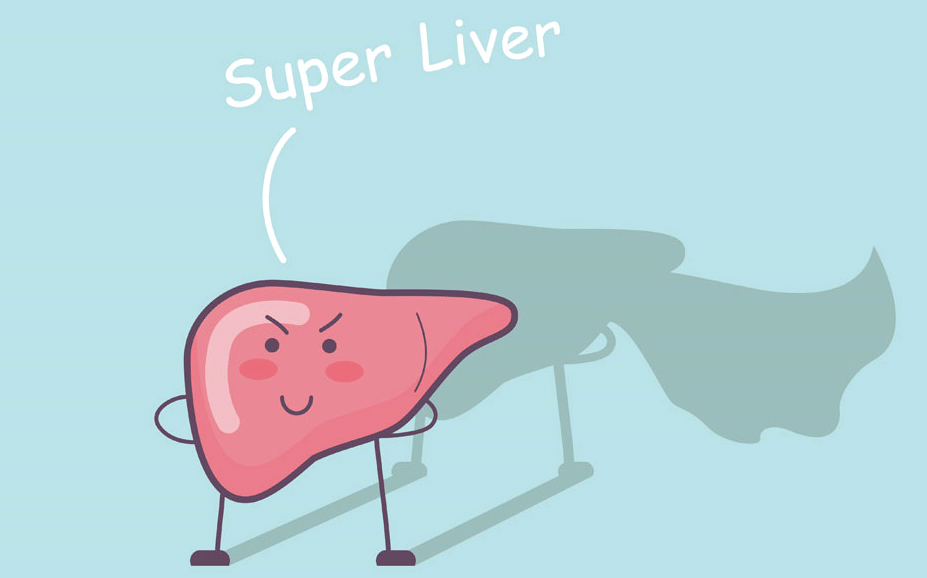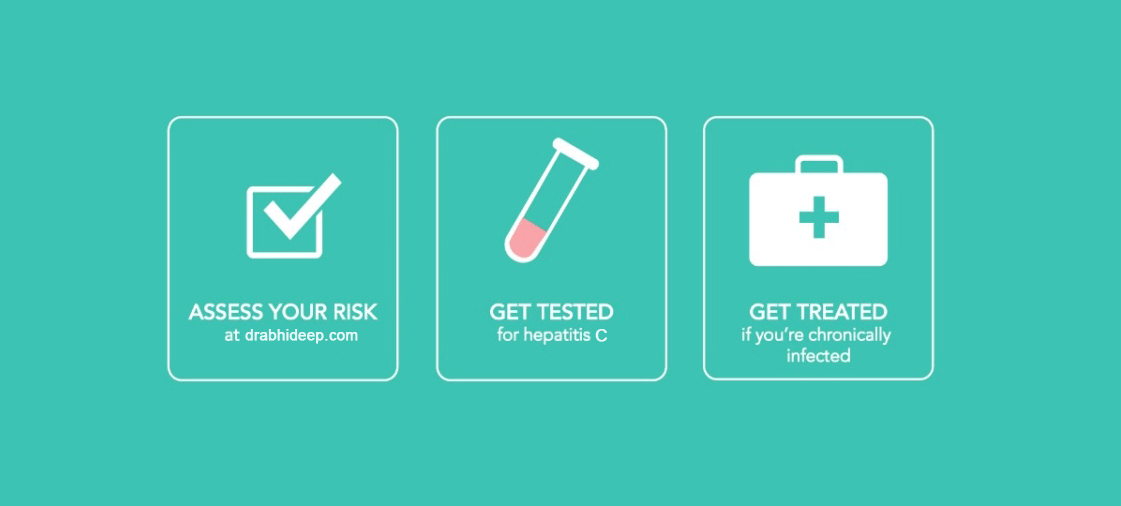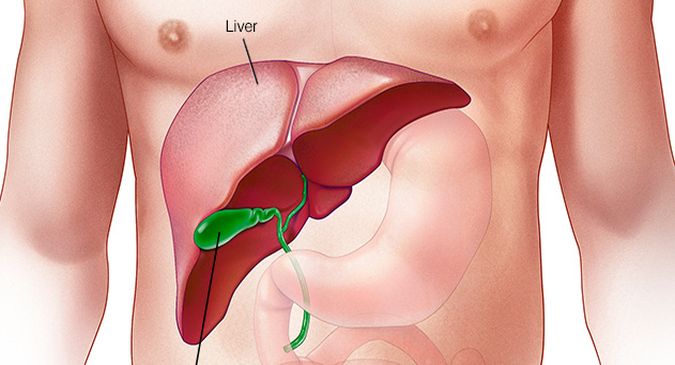The liver is the only human internal organ capable of natural regeneration of lost tissue; as little as 25% of a liver can regenerate into a whole liver. Its a very rapid process. The liver will attain to a normal size in 8 to 15 days following the removal of greater than 50% of the liver by mass.
About Your Liver
Know About Your Liver
The liver is a large, meaty organ that sits on the right side of the belly in the upper right-hand bit of the stomach pit, underneath the stomach, and on top of the stomach, right kidney, and digestive systems.
Weighing about 3 pounds and molded like a cone, the liver is reddish-brown/dull rosy tan in color and feels rubbery to the touch. Normally you can't feel the liver, because it's protected by the rib cage. Your liver is probably four to five times the size of your fist.
The liver has two large sections, called the right and the left lobes. The gallbladder sits under the liver, along with parts of the pancreas and intestines.
The liver is vital and necessary for survival of human being; the liver and other organs work together to digest, absorb, and process food. There is currently no way to compensate for the absence of liver function (LFT is used to finding them out) in the long term, although new liver dialysis techniques can be used in the short term.


What does liver do for your body?
Liver is a very vital organ and needs to be taken the utmost care. The liver is responsible for around 500 separate functions along with other organs / systems of your body. This makes liver like a big chemical laboratory doing lots of things. Currently, there is no artificial organ or device capable of emulating all the functions of the liver.
All the blood leaving the stomach and digestion systems passes through the liver. As it does so, the liver secretes bile that ends up back in the intestines. The liver also makes proteins important for blood clotting and other functions.
The functions of liver can be categorized broadly into Synthesis, Breakdown and Other Functions.
- Liver does synthesis of amino acids, protein synthesis and degradation, cholesterol synthesis, production of triglycerides
- Bulk of lipoproteins are also synthesized in liver. Liver also produces and excretes bile, required for emulsifying fats and help the absorption of vitamin K from the diet
- It gives resistance against disease.
- The liver produces thrombopoietin which is a glycoprotein hormone that regulates the production of platelets by the bone marrow
- It clears the blood of most chemicals, medications and liquor
- Liver is responsible for breakdown of insulin and other hormones. It also break down bilirubin and helping its excretion into bile
- Liver breaks down or clears most chemicals, toxic substances, medical products in a process called drug metabolism. Liver also converts ammonia to urea
- It manages thickening of blood by assembling crucial proteins
- Liver produces albumin, a major component of blood serum
- Liver produces a hormone, which is responsible for raising blood pressure in conditions of low blood pressure
- Liver stores multiple vitamins and substances like glucose, vitamin A, vitamin D, vitaminB12, vitamin K, iron and copper
What’s great about your Liver?
Alternative therapies stemming from the premise the mind, body and spirit function as one and addressing all promotes healing.

Want to schedule an appointment?
Call us at (+91) 9871859776 or fill in the appointment form...
